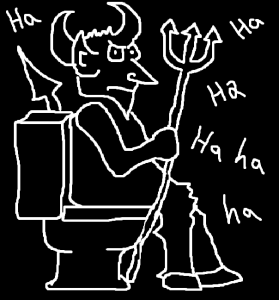
Photo by Fred Kearney on Unsplash
I am doing a “Banned Books” unit in my English 12 class this year.
The idea came to me when I heard that it was Banned Books Week (this year, September 22-28). This is an annual religious festival in honour of one of our culture’s main deities–Freedom. More particular, we celebrate the freedom to read. Because, in some circles, to challenge a book is to challenge a god, the celebration can sometimes take on a “screw you” sort of tone. But this is a worthy focus week, even for those for those who don’t bend the knee to freedom, for there are worrisome current and dangerous historical attempts to censor books in libraries and schools. These are often attempting not just to protect the vulnerable but to limit thought. Most of the books on the banned books lists were not, in fact, banned but challenged by someone somewhere about the use of these books in a classroom or their presence in a library. I like to use the word banned because, sure, it’s more sensational, but mostly because it alliterates so nicely. As in . . .
Banned Books or Bland Books
No, we are not reading Fifty Shades of Grey by E. L. James, not only because the content is inappropriate for young readers, but because it isn’t very good.
That’s the interesting thing, most of the books on the banned or challenged book list are the same books that have been taught in schools for decades. In other words, most of the banned books are the best books.
[click_to_tweet tweet=”Most of the banned books are the best books. #BannedBooks #BookBurning #Censorship #GreatBooks” quote=”Most of the banned books are the best books.”]
There’s a reason for this: the best books are often provocative.
Books that aren’t banned ask little of readers. They affirm our values and fulfill in the end what they promise in the beginning. Books that aren’t banned, are often bland books.
[click_to_tweet tweet=”What should we read in school, bland books or banned books? #BannedBooks #GreatBooks” quote=”What should we read in school, bland books or banned books?”]
Books that make demands of its readers are challenged. Books that challenge readers to look at the world differently are burned. Books that startle and shock us out of our comfort zone are banned. These are the books we should be reading.
The books that do this, are the best books, and they are the banned books.
A List of Banned Books
Here’s a list of some books that have been challenged; it’s also my recommended reading list. Its a list of books that everyone should read before they die, or better yet, long before they die so that having read them may do some good.
- To Kill a Mocking Bird by Harper Lee
- Huckleberry Finn by Mark Twain
- Tom Sawyer by Mark Twain
- Animal Farm by George Orwell
- Brave New World by Aldous Huxley
- Catch 22 Joseph Heller
- Flowers for Algernon by Daniel Keyes
- Catcher in the Rye by J. D. Salinger
- Fahrenheit 451 by Ray Bradbury
- Invisible Man by Ralph Ellison
- Grapes of Wrath by John Steinbeck
- The Great Gatsby by F. Scott Fitzgerald
- The Kite Runner by Khaled Hosseini
- 1984 by George Orwell
- The Handmaid’s Tale by Margaret Atwood
- Lord of the Flies by William Golding
- Of Mice and Men by John Steinbeck
- One Flew over the Cuckoo’s Nest by Ken Kesey
- A Prayer for Owen Meany by John Irving
- The Things They Carried by Tim O’Brien
- A Wrinkle in Time by Madeline L’Engle
- The Giver by Lois Lowry
These next three I actually haven’t read, but I’ve read what my students have written about them. These stories had an impact. Students understood, in a meaningful way, something more about our indigenous neigbours, systemic racism, and the girl with no hope.
- The Absolutely True Diary of a Part-Time Indian by Sherman Alexie
- The Hate You Give by Angie Thomas
- 13 Reasons Why by Jay Asher

